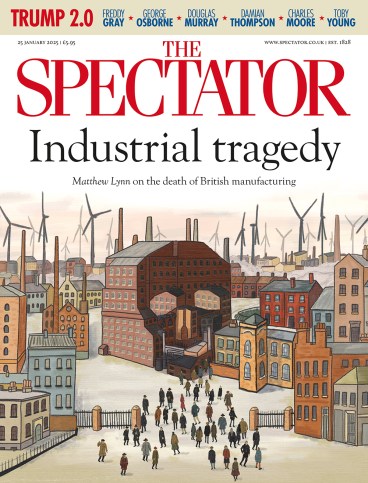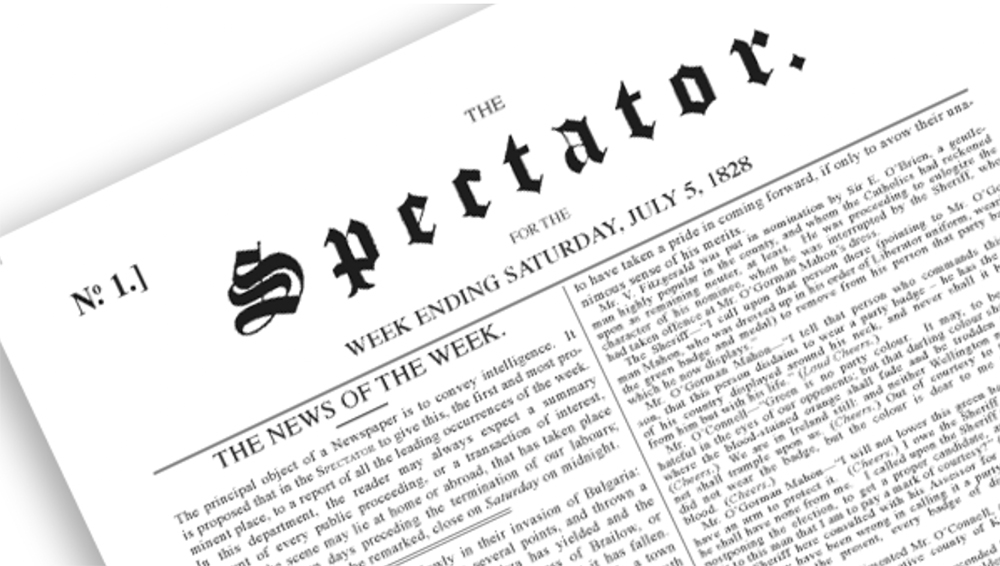
Donald Trump descends on Davos as if he were in Apocalypse Now. Four years ago I saw his cavalcade of helicopter gunships fly over the town. With the noise echoing off the mountain valley sides, he drowned out all the other conversations. This week his inauguration speech in the Congress Rotunda – watched in huddles around screens at Davos – had a similar effect. Withdrawing from the Paris climate talks and the World Health Organisation, the President was napalming the global international order which is celebrated here. And yet, apart from Bill Clinton in his final year in office, no American president has come to the World Economic Forum – except Trump. His address on Thursday (by video link) will be his third appearance. He loves it here. Why not? Deals to be done. Money to be made. Businesses to schmooze. Thinking you’re at the centre of things. Trump is the ultimate Davos Man.
One of the big American CEOs told me he’d been strong-armed into putting $1 million into the collecting tin for the inauguration – but he refused to attend. That was a step too far. Not for the bosses of Apple, Google, Facebook and Amazon, who found themselves in prime seats. Power is where power goes, Lyndon Johnson used to say. But then came Trump’s inaugural address and with each out-there statement – ‘I was saved by God to make America great again’ – a standing ovation from the audience of devoted supporters. Only Biden, Harris and the former presidents sat stony-faced. I could see the tech barons wondering what to do. Stand with the crowd or stay sitting with the glums? It reminded me of my own dilemma as a young Tory MP two decades ago watching a speech by another titan of the right, IDS. Like me, the tech barons had to stand and applaud, again and again. There’s no such thing as a free seat in politics.
If you want to be part of the political conversation these days, you need to hang out in golf clubs. America has Mar-a-Lago. Davos has Goals House. For one week a year, the clubhouse is transformed into the place the global elite come for their nightcaps. David Beckham was the centre of attention on Monday night. He and his wife used to be constituents of mine when he played for Man U and lived in Nether Alderley. Every time I’ve come across him, he’s been unfailingly polite and friendly, and so he was again, even while being mobbed by business chiefs masquerading as star-struck teenagers. Something I can’t explain is how, as the evening progresses and everyone else’s shirt comes untucked, David remains looking immaculate. He is in Davos to collect an award from the WEF for his charity work. But where is the recognition at home for this former captain of the national team, who’s done so much since to promote Britain? Why isn’t this patriot Sir David? Come on, Sir Keir.
Beckham’s trophy cabinet must be a sight. Mine doesn’t exist. I hope that’s about to change as my podcast with Ed Balls, Political Currency, is up for several awards next week at the podcasting equivalent of the Baftas. One is for ‘interview of the year’ with the new editor of The Spectator. I think Michael Gove has discovered what I found editing the Evening Standard – there’s no better methadone programme for recovering ex-politicians.
I hope, for her sake, Rachel Reeves isn’t going to be joining the programme any time soon. But she has her work cut out for her. The negative sentiment I hear about the UK both at Davos and last week in the US is deafening. The rot didn’t start under this government, but to say it hasn’t got better is charitable. I’m bombarded with tales of woe from would-be investors. The people who tried to build Europe’s largest film studio on a landfill site and were blocked; the guy who wanted to spend half a billion pounds on an energy project and couldn’t find anyone in government to take his call; fintech firms who were told by one prime minister after another that Britain was a home of crypto innovation, but still can’t sell basic products here. If you care about Britain, it’s depressing to hear. The contrast with the US is striking. Time to take some risks, unleash the animal spirits and say yes to economic freedom. Otherwise we’re fast on our way to becoming an economic backwater.
Trump claims to have a Renoir on his wall, although some say it’s a fake. If I could have anything, it would be one of Monet’s London paintings. When Monet rented a room in the Savoy hotel in 1899 and started to paint the Thames from his window, London was the Silicon Valley of its day – the place where the future was being forged. The smoke from the furnaces and factories played tricks with the light on the river that the great impressionist captured exquisitely. They were just reunited for the first time in a dazzling show at the Courtauld. It’s no secret that I was involved in the sale of this magazine to its new owner. He said to me at the time: ‘Some people would like to have a Monet on their wall; I’d rather use my good fortune to support this magazine and British journalism.’ There are similarities with those great paintings and this publication: they look effortless but involve a lot of hard work and skill; they leave people with a better understanding of the world; and, despite their long existence, they capture something of the future. Personally, I’d rather have the Monet – a real one.








Comments